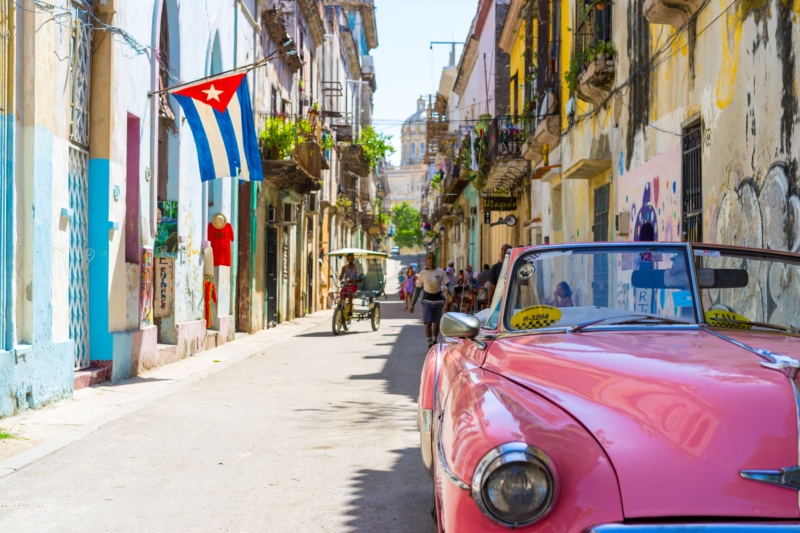Europe Might Take Another Step Back
If Spain fails to have the Common Position lifted or if it succeeds and Havana again turns down European economic cooperation, then Cuba wins once more.
This post is also available in: Español
We still do not know who is responsible for the very disturbing attacks against U.S. diplomats serving in Cuba. However, it seems almost certain their objective was to drive a wedge between the United States and Cuba. In this, they are succeeding. Beginning in December 2014, the governments of President Obama and President Castro took historic steps to chart a new course in relations between their countries. That significant but fragile rapprochement is now in serious jeopardy. While the Trump Administration has not alleged the Cuban government is responsible for the attacks, it has understandably demanded an explanation for the unprecedented attacks that occurred on Cuban soil. President Castro took a positive step by allowing the FBI to visit the island to investigate, but Cuba must ultimately take responsibility for finding out what happened and holding the responsible parties to account in a transparent fashion. The Trump Administration, while careful not to jump to conclusions, has nonetheless jumped into precipitous action—drawing down staff at the US Embassy in Havana, expelling Cuban diplomats from Washington, and advising US citizens against traveling to Cuba. While security for diplomats must be a paramount concern for the White House, these actions are likely to damage US interests while doing nothing to solve the mystery of the sonic attacks. Notably, the association of US diplomats opposed the staff withdrawals. A better first step would have been to aggressively test the Cuban government’s resolve to cooperate in investigating the attacks, and to evaluate further action based on a more complete set of facts.
Much of the focus of the rapprochement between the United States and Cuba during the Obama Administration was on government-to-government ties, including high-level meetings, the reestablishment of diplomatic relations, deepening cooperation in areas of mutual interest such as law enforcement and environmental protection, and frank dialogue even on contentious issues such as human rights. Perhaps just as important, however, was the significant expansion in ties between non-state actors, whether scientists, students, or ordinary citizens who benefited from more flexible travel regulations in both the United States and Cuba. These ties are now set to suffer. The Trump Administration’s repeal of individual people-to-people visits as a permissible category of purposeful travel and its issuance of a broad travel warning will limit the number of US visitors who can share their experiences and perspectives with the Cuban people. The decision to radically downsize the U.S. Embassy in Havana will make it far more difficult for Cubans to visit the United States. Under the new status quo, both Cubans and Americans lose.
Political will to salvage an improved relationship with Cuba is virtually nonexistent in the Trump Administration. While President Trump’s rollback of Obama-era policies toward Cuba was more strident in rhetoric than it was in practice, there is little impetus in the White House to do anything affirmative to rescue the bilateral relationship from its current downward spiral. Judging by some of the steps taken by President Castro in response to the attacks on U.S. diplomats, there may be greater political will on the Cuban side to prevent such a downward spiral. Short of solving the mystery and punishing those responsible, however, whatever political will exists in Cuba is unlikely to make an impression on the Trump Administration. President Obama and President Castro succeeded in shifting the bilateral relationship in fundamental ways, most importantly by changing the way the United States and Cuba had looked at each other for over half a century. In the long run, this offers reason to hope that the current impasse can be overcome. However, a significant deterioration in bilateral relations has occurred and appears likely to last for the duration of the Trump Administration.
The Cuban transition in 2018 was always going to be carefully scripted and managed, with the Cuban people denied the opportunity to choose their next leader in a democratic fashion, irrespective of U.S. policy. An important objective of the Obama Administration, in which I served, was to help Cubans shape their own futures over the longer term by expanding their economic opportunities, their access to technology and information, and their relationships with citizens of the United States. But ultimately it is the Cuban government itself that will determine whether Cubans’ hopes and ambitions are met, so we also used every opportunity to urge the Castro government to respect its citizens’ universal human rights and expand their political and economic freedom. The current deterioration in diplomatic relations is likely to strengthen those in both the United States and Cuba who favor the familiar comfort of a static Cold War antagonism over the rising expectations generated by a new U.S.-Cuba dynamic.
If Spain fails to have the Common Position lifted or if it succeeds and Havana again turns down European economic cooperation, then Cuba wins once more.
The Summit of the Americas was marked by discord between the US and Latin American countries. What did it accomplish, if anything?
On April 25, the Inter-American Dialogue hosted a conversation on the Cuba’s evolving political and economic situation and how the Catholic Church views its role in the country.
 Alexander Kunze / Unsplash
Alexander Kunze / Unsplash